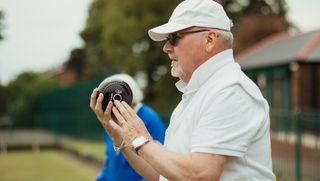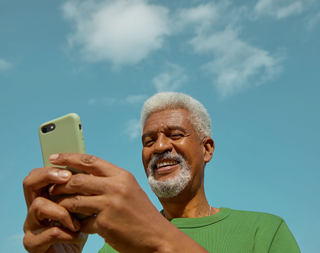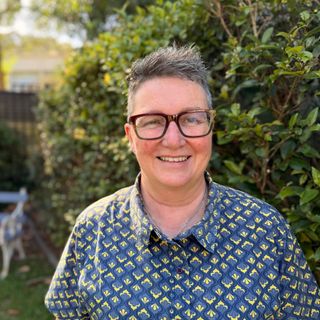Exercise and sport in your community
Tips for staying active and connecting with your community.

Summary
Losing your vision may make it more difficult to participate in the sports and exercise that you used to. However, there are modifications and adaptations that can help you to keep enjoying sports, try new forms of exercise, and meet new people.
Exercise is not only beneficial for your health, but it can also help you to connect with other people in your community. Classes and sports clubs can enable you to meet new and like-minded people who may have experiences similar to your own. Here are some sports and types of exercise suitable for people with low vision to keep you active and engaged in your community.
Running and walking
Running and walking groups can be a great way to meet new people and exercise at the same time.
Achilles Australia is a group that encourages people with disabilities to participate in running and walking sessions and enjoy the social and health benefits of exercising. Whether you want to walk a brisk 5k or run a marathon, Achilles Australia provides individuals with volunteer guides who can aid you in safely navigating the route.
Achilles Australia have chapters in most of the major cities including Sydney, Canberra, Melbourne and Brisbane, with some regional chapters in the Hunter region and Central Coast. Visit Achilles Australia to find out more.
Goalball
Goalball is a sport designed for people with low vision, but sighted players can also play. In Goalball, there are two teams and three players in each team. All players are blind folded so that players with different degrees of vision can play with each other. The players will throw a ball with bells inside to try and get it into the other team’s goal, and the other team must try to locate the ball by listening to the sound of the bells inside and prevent the ball from going in the goal.
Goalball NSW has regional hubs in Hunter Valley, Tamworth, Sydney Metro, and Gundagai. Visit NSW Goalball to find out more.
Not in NSW? Goalball also have hubs available in VIC, QLD, SA and WA, to find one closest to you visit Goalball Australia's website.
Yoga
Yoga is beneficial for your body and health as it can help to improve your flexibility, balance, and circulation. It can also benefit your mental health by reducing stress and enhancing your mood.
The City of Sydney has a number of accessible exercise classes that are suitable for people with low vision, including accessible yoga and chair yoga. Take a look at the City of Sydney website to find out what events are happening soon.
If you’re based in New South Wales, visit NSW Health’s Active and Healthy website where you can find local accessible yoga classes.
Gentle exercise classes
Local community centres will often run group exercise classes tailored for people over the age of 50. Many of these classes may be suitable for people with low vision. These classes can be a great way to find exercises that are suitable for you and to meet people from your community.
NSW Health has an initiative called Active and Healthy, which is an online directory of exercise programs for people aged 50 and over. Visit the Active and Healthy website to find local classes in your area.
Bowls
Bowls is a game in which the aim is to roll a symmetrical ball (known as a bowl) closest to a smaller ball (known as a kitty or jack). Bowls can be played with just two players, or it can be played in teams, making it a good way to connect with others.
The game can be modified for players with low vision by having a sighted guide and adding a string down the middle of the lawn to help players to line up their shot.
Visit The Australian Blind Bowlers Association to find out more about bowls, and to see if there are any groups in your area,
For more information
- Visit Blind Sports Australia’s website to find out more about sports that are accessible for people with low vision.
- Visit Blind Sports NSW/ACT.
- Visit NSW Health’s Active and Healthy website to find an exercise program near you.
- Always speak to your GP and eyecare professional about the best treatment options for you.
Did you find this article helpful?
Share your thoughts and help us make our resources better for everyone.
Enjoying the content?
Start building your profile to access personalised support, resources, and tools tailored to your eye health journey.

